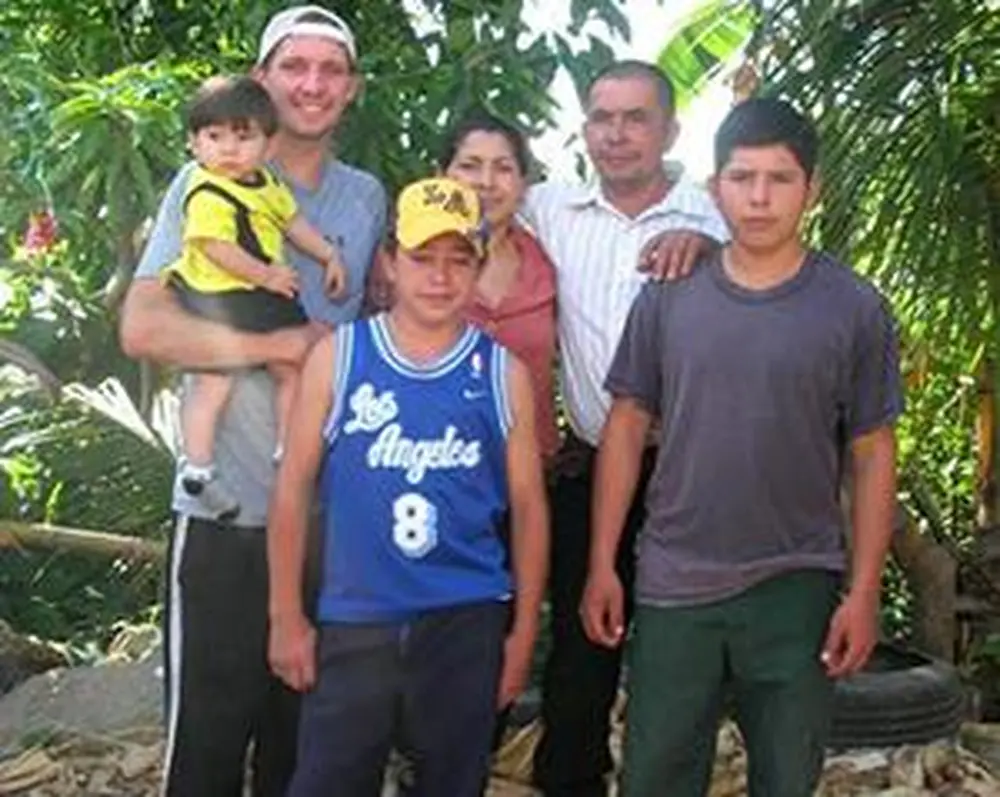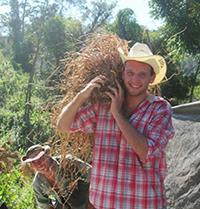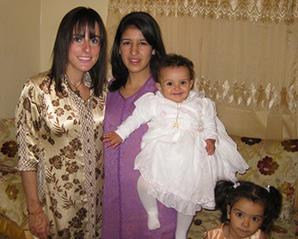

If you want to understand just how patient the Salvadoran people are, get on a bus there, says LAS alumnus Andrew Piotrowski. Whenever he travels on buses in El Salvador, he is amazed by the number of people they can pack like sardines into the vehicle. But even more amazing, he says, are the attitudes of the passengers.
No one complains, no one mutters as the bus stops to take on more riders, and people squeeze to the middle to make room. “The only person thinking, ‘I can’t believe they’re letting on more people,’ is probably me,” says Piotrowski, a 2010 Illinois graduate in political science.
Piotrowski is wrapping up his final year as a Peace Corps volunteer, and the bus stands as a symbol of what he appreciates most about the Salvadoran culture—their laid-back friendliness. He is one of 54 Illinois graduates currently serving in the Peace Corps, a number that puts the University of Illinois among the top volunteer-producing universities in the country for the 13th straight year.
In fact, since the agency was formed in 1961, a total of 1,973 Illinois alumni have served overseas, making U of I the number seven all-time producer of Peace Corps volunteers.

Peace Corps was created as a way for Americans to serve their country by working in developing countries. Volunteers go through an application process, and if they are approved, placement officers match their skills and background with a particular region of the world. A volunteer typically serves for 27 months.
LAS alumna Cara Herman spent her 27 months in Morocco, and like Piotrowski, she was struck by the hospitality of people she met.
“Moroccan people want you to feel a part of the family,” says Herman, a 2008 graduate in international studies who finished her Peace Corps program in 2011. “My host family called me Daughter or Sister, and right off the bat they made me feel at home.”
Feeling “at home” is saying a lot because many amenities of home are gone during these adventures. Herman says she had hot water, a luxury in Errachidia, Morocco, where she stayed; but she still had to cope with another form of heat—100- to 110-degree F temperatures at the peak of summer in a Muslim culture where it would not be appropriate to wear shorts or tank tops. Sleeping on the roof of her house at night was one solution.

For Piotrowski, living on a farm in mountainous northern El Salvador meant waking up to the sound of roosters and cows. It also meant hunting iguana and playing cards with newfound friends, and then carrying a chicken down to the stream to fish, play guitar, and make chicken soup.
Peace Corps volunteers begin with three months of training in which they are placed with a host family, taught the language, and learn about the country’s culture. After training, volunteers go to their permanent site, where they live with another host family and are assigned to a particular specialty, such as business development or health.
Both Piotrowski and Herman wound up with an emphasis on youth development. Piotrowski teaches various classes to the older students in a local grade school, while Herman taught English and ran programs at the local Dar Chabab, or youth center. She worked primarily with high school students, but she also led an aerobics class for young women (with the curtains drawn for modesty’s sake).

In any volunteer experience, there are inevitable difficulties, and for Piotrowski it came in the form of a scorpion. After cutting himself during a soccer game, he had to be driven three hours for stitches at a hospital in the capital, San Salvador. But while waiting for transportation, he felt a bite on his foot and was shocked to see a scorpion. Fortunately, the scorpion stung him in the foot, which is not dangerous; he said it’s like getting a bee sting, only worse, and his foot went numb temporarily.
Despite such problems, the fond memories stood out for both volunteers. Piotrowski took joy in organizing soccer tournaments, which he combined with HIV awareness training, and he even helped a student obtain a scholarship to get into a nearby college. Herman will never forget assisting with a Special Olympics event in Tangier and sleeping under a star-filled sky in the Merzouga Desert.
Herman is now working with the International Visitor Leadership Program at the U.S. State Department in Washington, D.C.—a job made possible because of her Peace Corps experience.
Piotrowski will finish his Peace Corps mission this fall, but he is seriously thinking of living in El Salvador. Piotrowski met his girlfriend, a Salvadoran, at an impromptu dance that he and his friends had organized by setting up speakers in the middle of town and inviting people to dance in the streets. Finding his girlfriend was an unexpected benefit of his Peace Corps experience.
“In Peace Corps, you learn a lot about yourself, about patience and perseverance, and how to be a leader,” he says. “It’s been an adventure to be sure.”


